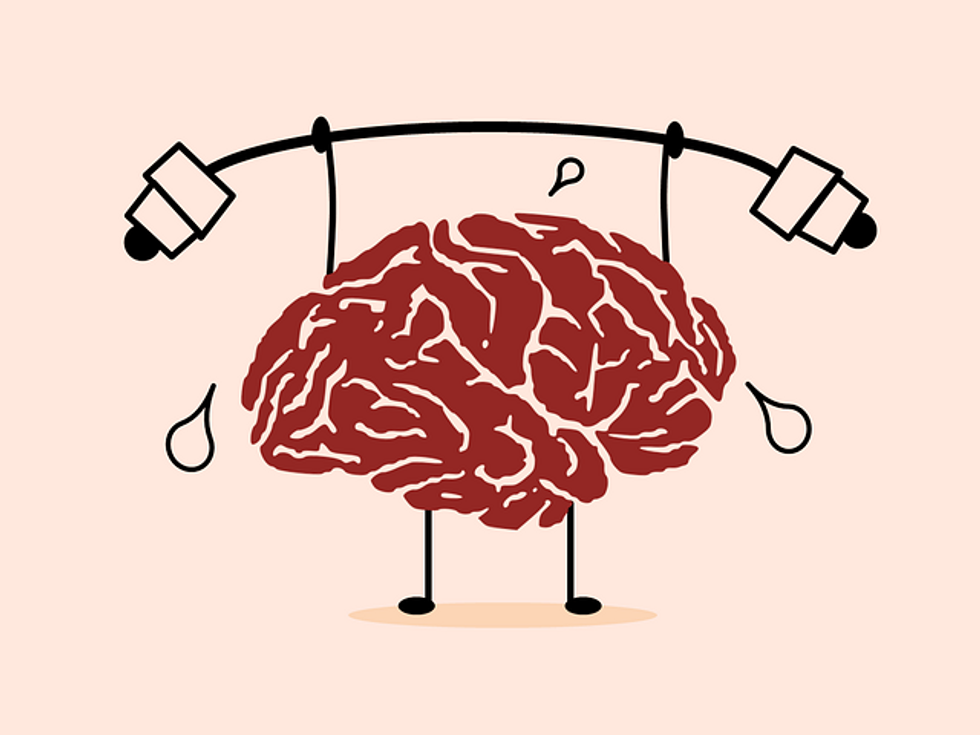The news, and social media in particular, have been abuzz in the last few years with various campaigns, advertisements, and general testimonies of the importance of mental health awareness.
If you are one of the people that believe the spike in mental health awareness and concern is a result of the "me" generation forcing our voice into society, I ask you to consider a few things before you roll your eyes and move on to another task in your day.
Firstly, I would like you to understand that, in a single year, 1 in 5 adults (18.5%) experience mental illness, such as schizophrenia, eating disorders, bipolar disorder, depression, and various anxiety disorders.
Now, let's break that down by generations. Between 2013 and 2016, adolescents between the ages of 12 and 17 years old experienced a 63% increase in depression diagnoses, while Millennials, aged 18 to 34 years old, experienced a 47% increased in diagnoses. , realize that other older age groups experienced substantial rises as well (increases of 26% and 23% for those 35-49 and 50-64 years in age.)
However, those aged 35 to 49 years old experienced a 26% increase and those aged 50 to 64 years old experienced a 23% increase in depression diagnoses. Furthermore, Caucasian men over 85 account for the highest suicide rates in the U.S. As of 2019, most of these men were born in 1934 and are part of the Silent Generation.
I don't know about you, but I find these statistics quite alarming. Not only because my own generation has been affected by this uptick in mental illness, but because so many older individuals have not sought help before reaching a point of no return. Sure, younger generations have seen a rise in mental illnesses, but we are also the generations that are more open to discussion because of that. We know we need help because we have been taught that it's okay to need help.
Before you start to why might that be the case? Why might older generations be feeling more hopeless?
In a survey conducted by Ashlyn M. Avera of Georgia Southern University, participants were grouped according to the generation that they belong to and were then asked to match a mental illness with its symptoms. In this survey, Millennials had a 77% success rate, Generation X had a 75.6% success rate, and Baby Boomers finished with 63.4% success rate.
Again, I, personally, think this clarifies the reason that my generation has pushed to make mental health a priority in our society. We have seen the effects of suffering in silence in our elders and we do not want to see the same statistics continue to repeat themselves or even worsen in the future.
What you need to understand is that we are not a generation that is all about ourselves. Instead, we are a generation that wants to take a risk in challenging a previously established stigma which surrounds a serious issue in our nation because we want to help others live a happier, healthier life.
This isn't for our generation, it's for our entire society. We have to remind one another that we are never truly alone.
- Having More Mental Health Awareness Can Help You Help The ... ›
- The Month Of Mental Health Awareness ›
- #RaiseYourHorns For Mental Health Awareness ›
- May is Mental Health Awareness Month ›





 Going to the cinema alone is good for your mental health, says science
Going to the cinema alone is good for your mental health, says science












 women in street dancing
Photo by
women in street dancing
Photo by  man and woman standing in front of louver door
Photo by
man and woman standing in front of louver door
Photo by  man in black t-shirt holding coca cola bottle
Photo by
man in black t-shirt holding coca cola bottle
Photo by  red and white coca cola signage
Photo by
red and white coca cola signage
Photo by  man holding luggage photo
Photo by
man holding luggage photo
Photo by  topless boy in blue denim jeans riding red bicycle during daytime
Photo by
topless boy in blue denim jeans riding red bicycle during daytime
Photo by  trust spelled with wooden letter blocks on a table
Photo by
trust spelled with wooden letter blocks on a table
Photo by  Everyone is Welcome signage
Photo by
Everyone is Welcome signage
Photo by  man with cap and background with red and pink wall l
Photo by
man with cap and background with red and pink wall l
Photo by  difficult roads lead to beautiful destinations desk decor
Photo by
difficult roads lead to beautiful destinations desk decor
Photo by  photography of woman pointing her finger near an man
Photo by
photography of woman pointing her finger near an man
Photo by  closeup photography of woman smiling
Photo by
closeup photography of woman smiling
Photo by  a man doing a trick on a skateboard
Photo by
a man doing a trick on a skateboard
Photo by  two men
two men  running man on bridge
Photo by
running man on bridge
Photo by  orange white and black bag
Photo by
orange white and black bag
Photo by  girl sitting on gray rocks
Photo by
girl sitting on gray rocks
Photo by  assorted-color painted wall with painting materials
Photo by
assorted-color painted wall with painting materials
Photo by  three women sitting on brown wooden bench
Photo by
three women sitting on brown wooden bench
Photo by 
 Photo by
Photo by  Photo by
Photo by  Photo by
Photo by  Photo by
Photo by 


 people sitting on chair in front of computer
people sitting on chair in front of computer






